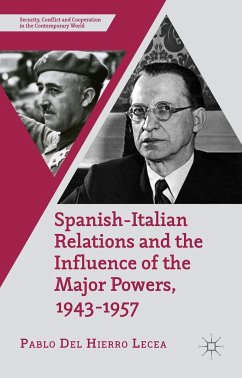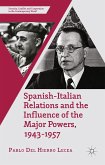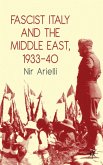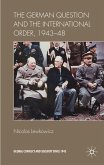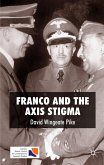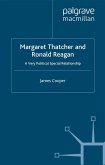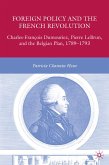'Mainly based on new archival evidence, Del Hierro Lecea's volume offers both a stimulating analysis of Italian-Spanish relations and a thoughtful interpretation of those two countries' foreign policies in the early Cold War period.' - Professor Antonio Varsori, University of Padova, Italy
'An impressive account of Spanish-Italian relations post-1943. Thoroughly researched, Pablo Del Hierro Lecea manages to juggle a remarkable number of archives in five different countries to build this fascinating story. The clever inclusion of the major powers in the narrative makes the book an even more relevant contribution for the historiography of Spain and Italy, and also of the Cold War.' - Fernando García Sanz, EEHR, Spanish School of History and Archaeology in Rome, Italy
'Subtlety of argument, deep research, and a lively writing style mark Pablo del Hierro Lecea's superb study of Spanish-Italian relations during the underanalyzed period 1943-1957. It treats both bilateral and international diplomacy with intelligence and care. There is nothing else like it in the literature of Europe's Cold War.' - Andrew J. Rotter, Colgate University, USA
'An impressive account of Spanish-Italian relations post-1943. Thoroughly researched, Pablo Del Hierro Lecea manages to juggle a remarkable number of archives in five different countries to build this fascinating story. The clever inclusion of the major powers in the narrative makes the book an even more relevant contribution for the historiography of Spain and Italy, and also of the Cold War.' - Fernando García Sanz, EEHR, Spanish School of History and Archaeology in Rome, Italy
'Subtlety of argument, deep research, and a lively writing style mark Pablo del Hierro Lecea's superb study of Spanish-Italian relations during the underanalyzed period 1943-1957. It treats both bilateral and international diplomacy with intelligence and care. There is nothing else like it in the literature of Europe's Cold War.' - Andrew J. Rotter, Colgate University, USA

